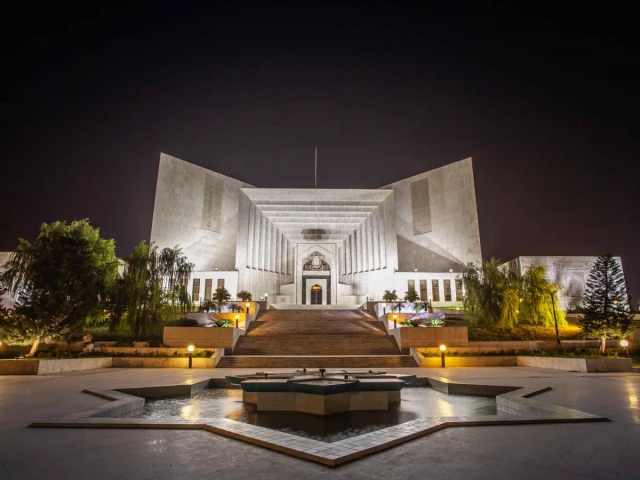The Supreme Court on Thursday expressed strong displeasure over the Khyber-Pakhtunkhwa (KP) government’s failure to rebuild schools damaged in the 2005 earthquake, questioning why the rehabilitation work remained incomplete even after two decades.
A larger five-member bench, headed by Justice Aminuddin Khan, took up the ‘suo motu’ case regarding the dilapidated state of government schools across the province. The bench also included Justices Jamal Khan Mandokhail, Hasan Azhar Rizvi and others.
The suo motu notice was issued after reports emerged that hundreds of school buildings in quake-hit districts such as Mansehra, Battagram and Kohistan remained unfinished and many were still functioning in temporary shelters or tents. Despite budgetary allocations under multiple reconstruction programs since 2005, progress has remained extremely slow.
Read: KP’s education system in the doldrums
Justice Hasan Azhar Rizvi pointed out that reconstruction had been stalled for years, pointing out that 107 school units in Mansehra and 11 in Kohistan were still incomplete. “Twenty years have passed since the 2005 earthquake,” he observed. “We’re sitting here in 2025: how much more time do you need”?
“Implementation of the directions of the Supreme Court is underway,” the additional secretary education told the bench while seeking another extension, citing logistical delays and harsh weather conditions. “Snowfall in winter affects construction work,” the KP government council added.
Justice Mandokhail, visibly upset by this explanation, remarked: “Even after the 2005 earthquake, the schools were not completed. Building new schools is important, but repairing the old ones is equally necessary.”
The bench’s remarks shed light on a broader, long-standing problem: the chronic neglect of the province’s public education infrastructure.
According to a 2021 report from The Express PK Press Club according to data from the KP Planning and Development Department, nearly 16,000 government schools were in dire need of attention. Around 3,300 did not have surrounding walls, 4,272 did not have access to drinking water, 5,456 did not have electricity and 2,836 did not have toilets, including more than 800 girls’ schools.
Learn more: KP uses ADP budget of Rs120b for current financial year
Education experts have warned that such conditions discourage school attendance and contribute to the province’s estimated 3.8 million out-of-school children – among the highest in the country.
The additional secretary again pleaded for three more months to complete the ongoing projects, but the bench reminded the provincial government that similar extensions had been granted several times before.
“We have given you time at your request – now show us the progress,” Justice Aminuddin Khan remarked, warning that continued negligence would no longer be tolerated. “Our job is not to build schools but to review the implementation process,” he said.
Justice Mandokhail added: “We are only saying that you must take responsibility.”
Local communities in the earthquake-hit area say the delay has taken a heavy toll. In districts like Balakot, where the 2005 earthquake razed entire towns, students continue to attend classes in makeshift shelters or in the open. Parents say they are tired of promises that never translate into the classroom.
Read also: KP schools move to semester system
During the hearing, the court granted the KP education department an additional six months to comply with its earlier directives after the provincial government again requested more time to complete the ongoing reconstruction work. The court ordered the submission of a full progress report within that time, detailing the timelines for the completion of all remaining school projects.
The bench noted that the matter would be taken up once the compliance report was submitted – a reminder that two decades after one of Pakistan’s deadliest natural disasters, KP’s children are still waiting for the promise of a safe education to be realized.




